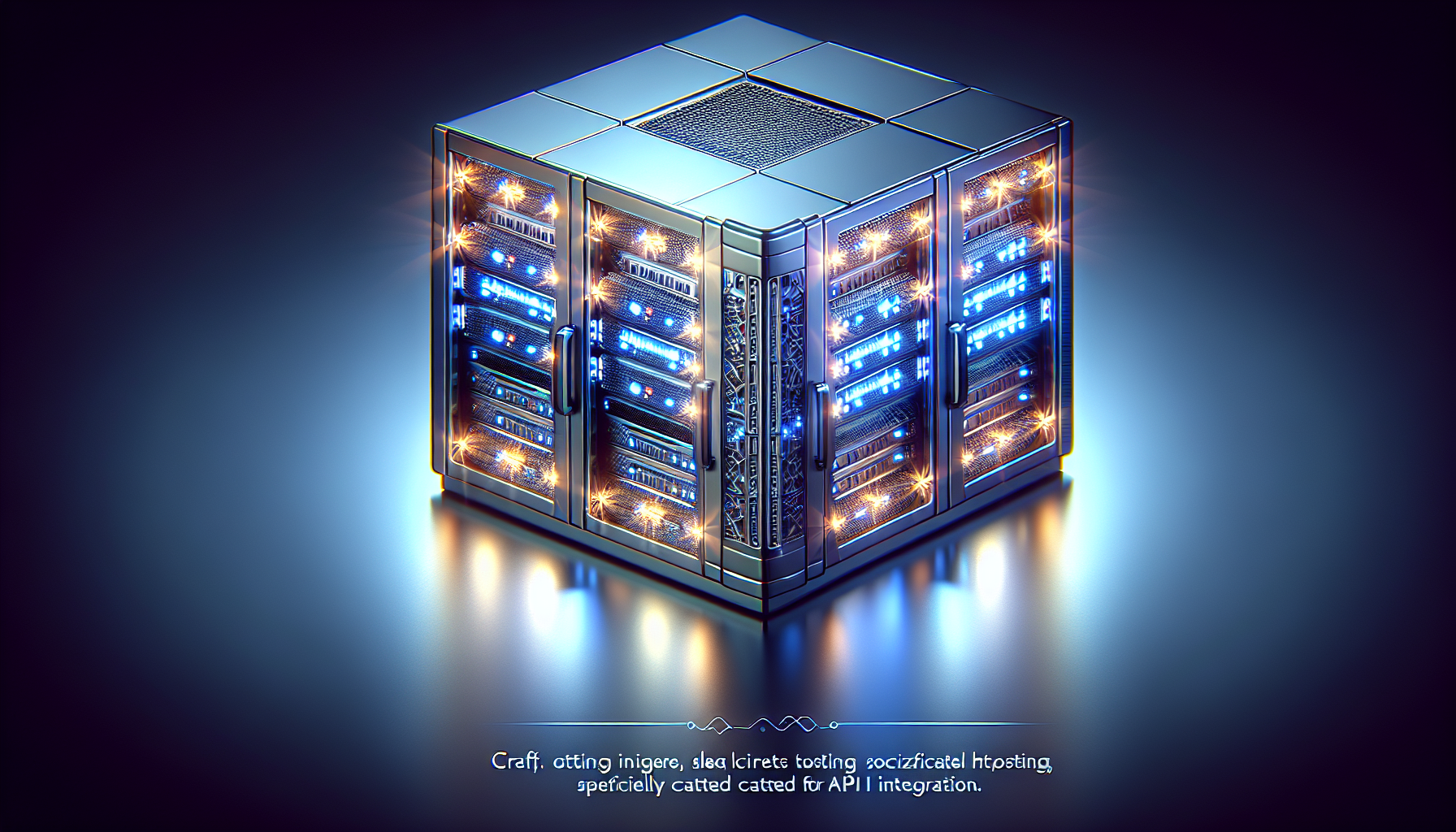Are you looking for the best practices for advanced hosting that will optimize your API integration process?
When it comes to hosting for API integration, there are a variety of best practices that can help streamline your process and ensure optimal performance. In this article, we will explore some advanced hosting techniques that will take your API integration to the next level.
Understanding API Integration
API integration is the process of connecting different software systems and allowing them to communicate with each other. By using APIs, developers can access and utilize functionalities of other software applications, making it easier to build robust and feature-rich applications.
Understanding the basics of API integration is crucial before delving into advanced hosting techniques. This will ensure that you have a solid foundation to build upon as you optimize your hosting environment for seamless integration.
Choosing the Right Hosting Provider
One of the first steps in optimizing your API integration process is to choose the right hosting provider. Look for a provider that offers scalable and reliable hosting solutions, as well as excellent support services. Consider factors such as uptime guarantees, security features, and pricing when selecting a hosting provider for your API integration needs.
When selecting a hosting provider for your API integration needs, make sure to prioritize scalability, reliability, and security. These factors are crucial in ensuring that your APIs are always accessible and performing at their best.
Utilizing Cloud Hosting Services
Cloud hosting services have become increasingly popular due to their scalability, flexibility, and cost-effectiveness. By leveraging cloud hosting for your API integration needs, you can easily scale your resources up or down based on demand, ensuring optimal performance and cost-efficiency.
Cloud hosting services offer a wide range of benefits for API integration, including scalability, flexibility, and cost-effectiveness. By utilizing cloud hosting, you can ensure that your APIs are always available and responsive to user requests.
Advantages of Cloud Hosting for API Integration
Cloud hosting offers several advantages for API integration, such as:
- Scalability: Easily scale your resources based on demand, ensuring optimal performance during peak usage periods.
- Flexibility: Cloud hosting allows you to customize your hosting environment to meet the specific requirements of your API integration process.
- Cost-effectiveness: Pay only for the resources you use, making cloud hosting a cost-effective option for API integration projects.
By leveraging these advantages, you can ensure that your API integration process is streamlined and efficient, leading to better performance and user satisfaction.
Implementing Load Balancing
Load balancing is a technique used to distribute incoming network traffic across multiple servers to ensure optimal performance and availability. By implementing load balancing for your API integration, you can evenly distribute traffic to servers, preventing any single server from becoming overwhelmed.
Load balancing is an essential technique for optimizing the performance and availability of your APIs. By evenly distributing network traffic across multiple servers, load balancing helps ensure that your APIs are always responsive and accessible to users.
Types of Load Balancing Algorithms
There are several types of load balancing algorithms that you can implement for your API integration, such as:
- Round Robin: Distributes traffic equally across all servers in a rotating manner.
- Least Connections: Directs traffic to the server with the fewest active connections.
- Weighted Round Robin: Assigns a weight to each server based on its capacity, distributing traffic accordingly.
By choosing the right load balancing algorithm for your API integration needs, you can ensure that your API servers are always performing at their best.
Securing Your API Integration
Security is a critical aspect of API integration, as it involves transmitting sensitive data between different software systems. To ensure the security of your API integration process, it is essential to implement robust security measures, such as encryption, authentication, and access control.
Securing your API integration is vital to protect the integrity and confidentiality of your data. By implementing strong security measures, you can prevent unauthorized access to your APIs and ensure that your data remains secure at all times.
Best Practices for API Security
Some best practices for securing your API integration include:
- Encryption: Encrypt data transmitted between systems to protect it from unauthorized access.
- Authentication: Implement authentication mechanisms to verify the identity of users accessing your APIs.
- Access Control: Restrict access to your APIs based on user roles and permissions to prevent unauthorized usage.
By following these best practices, you can ensure that your API integration process is secure and protected from potential security threats.
Monitoring and Analytics
Monitoring and analytics are essential for optimizing the performance of your API integration process. By monitoring key metrics and analyzing data, you can identify bottlenecks, troubleshoot issues, and make informed decisions to improve the efficiency of your APIs.
Monitoring and analytics play a crucial role in ensuring that your APIs are always performing at their best. By tracking performance metrics and analyzing data, you can gain valuable insights into the health and efficiency of your API integration process.
Key Metrics to Monitor
Some key metrics to monitor for your API integration process include:
- Response Time: Measure the time it takes for your APIs to respond to user requests.
- Error Rates: Monitor the frequency of errors occurring in your API integration process.
- Traffic Volume: Track the amount of incoming network traffic to identify usage patterns and spikes.
By monitoring these key metrics, you can proactively detect issues, optimize performance, and ensure that your APIs are meeting user expectations.
Optimizing API Performance
Optimizing the performance of your APIs is essential for ensuring that they are responsive, reliable, and efficient. By implementing performance optimization techniques, you can minimize latency, reduce downtime, and enhance the overall user experience.
Optimizing API performance is crucial for delivering a seamless user experience and maximizing the efficiency of your API integration process. By fine-tuning your APIs for speed and reliability, you can ensure that they meet the demands of your users and perform at their best.
Performance Optimization Techniques
Some performance optimization techniques for API integration include:
- Caching: Store frequently accessed data to reduce the need for repeated data fetching.
- Compression: Compress data transmitted between systems to minimize bandwidth usage and latency.
- Rate Limiting: Limit the number of requests that can be made to your APIs to prevent overload and ensure fair usage.
By implementing these performance optimization techniques, you can enhance the speed, reliability, and efficiency of your APIs, resulting in a better user experience.
Conclusion
In conclusion, advanced hosting for API integration involves a combination of best practices, techniques, and strategies to optimize the performance and reliability of your APIs. By understanding the basics of API integration, choosing the right hosting provider, leveraging cloud hosting services, implementing load balancing, securing your API integration, monitoring key metrics, and optimizing performance, you can ensure that your APIs are always available, responsive, and secure.
Remember, API integration is a complex process that requires careful planning and execution. By following the best practices outlined in this article, you can streamline your API integration process, improve performance, and deliver a seamless user experience. So, what are you waiting for? Get started with advanced hosting for API integration today and take your APIs to the next level!









